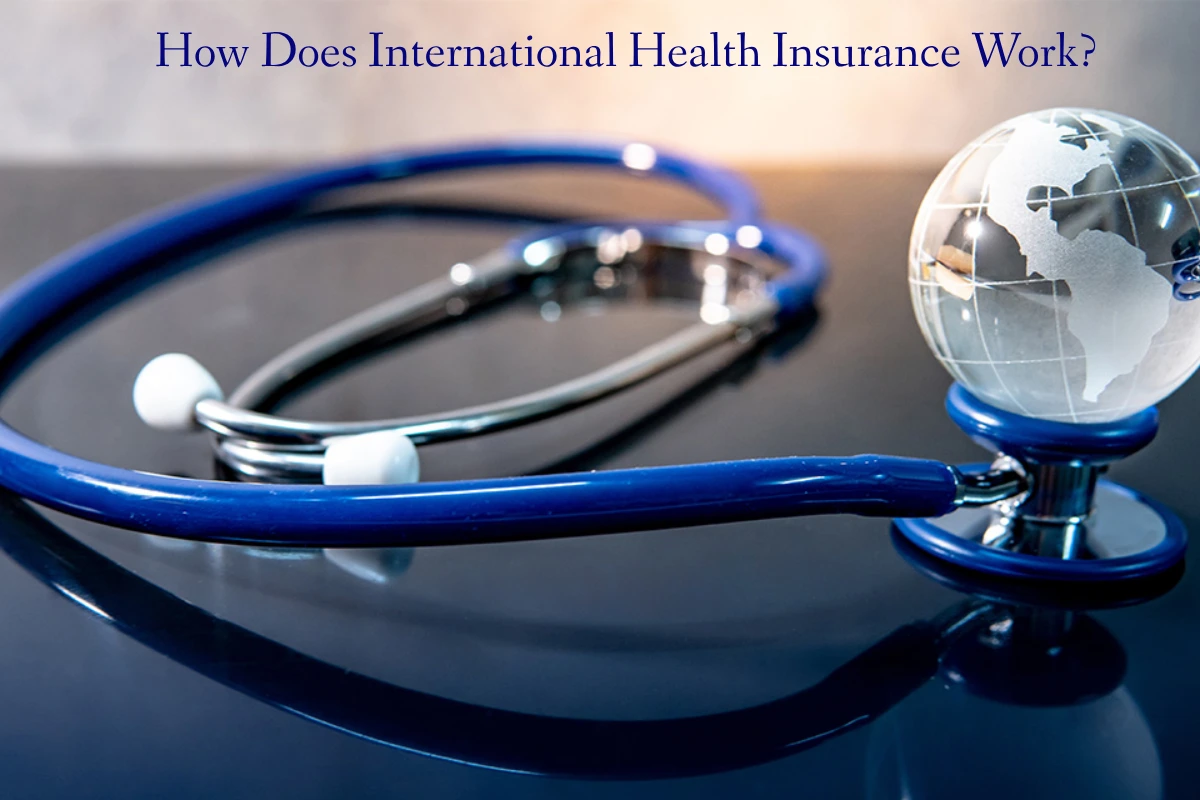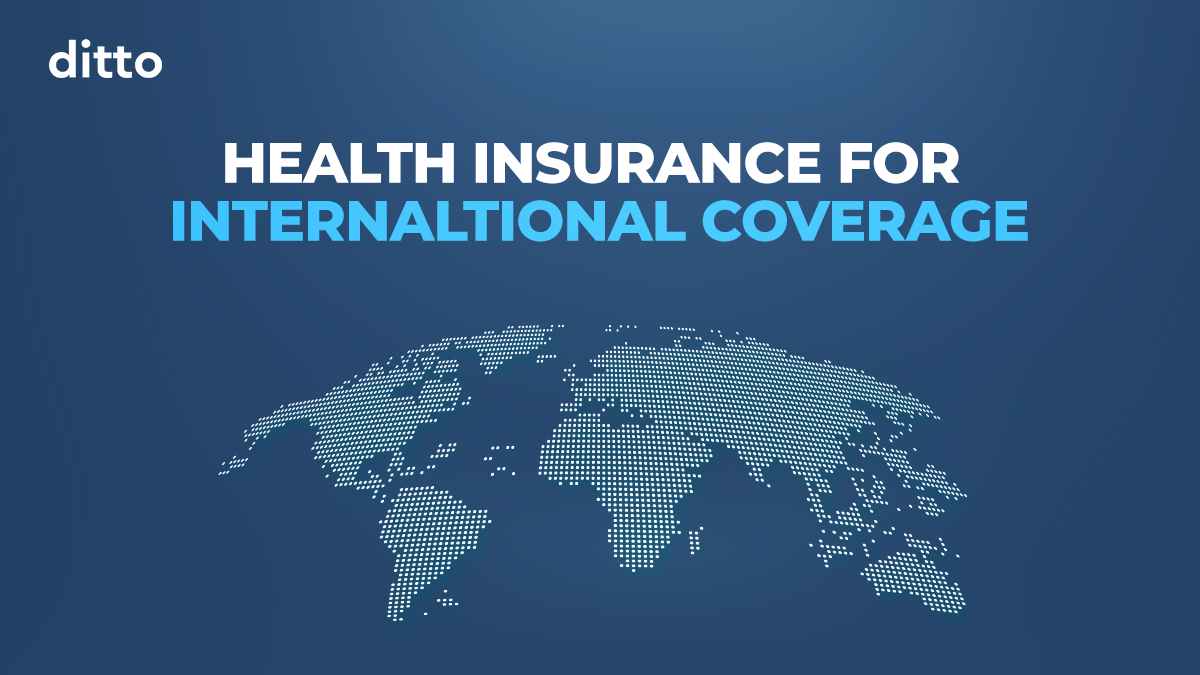International Health Insurance Policy Your Global Health Shield
International health insurance policy is crucial to any global traveler’s preparation. It provides a safety net for unexpected medical expenses during international trips, ensuring peace of mind and financial security in unfamiliar environments. This comprehensive guide will explore the intricacies of global health insurance policies, from understanding the benefits and features to navigating the policy costs and choosing the right plan.
Different types of plans, such as short-term and long-term coverage, cater to various needs. This exploration will cover the key factors impacting policy costs, including geographical location, pre-existing conditions, and coverage limits. Furthermore, essential considerations before purchasing, such as evaluating coverage for emergencies and understanding exclusions, will be addressed. The guide also delves into the specifics of coverage, benefits, and the claim process. It will explain the significance of understanding policy documents, provide practical advice on managing the policy, and examine real-world case studies.
Introduction to International Health Insurance Policies
International health insurance policies provnrrvuical expenses incurred while traveling or residing outside one’s home country. These policies are designed to mitigate the financial risks associated with unexpected illnesses or injuries abroad, offering peace of mind and facilitating access to necessary medical care. They are particularly important for individuals planning extended stays, working, or studying internationally.
These policies vary significantly in their scope and features. Understanding the nuances of different plans is crucial for selecting the most suitable coverage for personal circumstances. Factors such as the duration of the trip, the destination, and the individual’s health conditions should be considered when choosing an international health insurance plan.
Key Benefits and Features
International health insurance policies offer comprehensive coverage for a wide range of medical services, including emergency room visits, hospital stays, specialist consultations, and prescribed medications. Many policies also include pre-authorization and referral services, facilitating smoother access to medical care. Some policies extend to cover repatriation of remains or emergency evacuation, providing further security and support in unforeseen circumstances.
Types of International Health Insurance Plans
Different types of international health insurance plans cater to diverse needs and circumstances. A crucial factor to consider is the duration of coverage.
| Plan Type | Description | Typical Use Cases |
|---|---|---|
| Short-Term | Designed for travelers and short-term stays abroad. These policies generally provide coverage for a defined period, often ranging from a few weeks to several months. | International trips, short-term study abroad programs, business trips, or temporary assignments. |
| Long-Term | Tailored for individuals residing or working abroad for an extended duration. These plans typically offer continuous coverage for a specific timeframe, potentially years. | Individuals working or studying abroad for a prolonged period, expatriates, or those relocating permanently. |
Situations Requiring International Health Insurance
International health insurance becomes critical in various situations. Medical emergencies, particularly in foreign countries with limited familiarity, often involve substantial costs that may not be covered by domestic insurance. For instance, an individual travelling to a region with limited healthcare infrastructure or experiencing a sudden illness abroad will greatly benefit from international coverage.
Examples of Crucial Situations
Travelers encountering unexpected illnesses or injuries while abroad require comprehensive coverage. Similarly, individuals working or studying in a foreign country may need coverage for routine medical care or unforeseen health complications. Furthermore, international health insurance is vital for individuals with pre-existing medical conditions, as it can often bridge the gap in care provided by domestic coverage. A student participating in a long-term study abroad program, or an expatriate working overseas, would face significant financial burdens without international health insurance in case of an unexpected medical need.
Factors Affecting Policy Costs

Source: fitfulliving.com
International health insurance policies are designed to provide comprehensive coverage for medical expenses incurred during travel or residence abroad. However, the cost of these policies is influenced by a multitude of factors, making it crucial to understand these elements when choosing a suitable plan. Understanding these factors empowers informed decision-making and helps individuals select a policy that aligns with their specific needs and budget.
Geographical Location and Premiums
Geographical location significantly impacts international health insurance premiums. Countries with high healthcare costs and a shortage of readily available, affordable healthcare facilities tend to have higher premiums. This is often due to the higher expected medical expenses that could be incurred within these locations. For instance, healthcare costs in North America and Western European countries typically command higher premiums compared to those in developing nations. This disparity reflects the varying healthcare infrastructure and service costs across the globe.
Pre-existing Conditions and Policy Pricing
Pre-existing medical conditions can influence the pricing of an international health insurance policy. Insurance providers often assess the risk associated with pre-existing conditions to determine the appropriate premium. Some policies may exclude coverage for pre-existing conditions entirely, while others may impose limitations or higher premiums. Policies that offer coverage for pre-existing conditions generally require a thorough medical evaluation and may impose a waiting period before coverage begins.
Coverage Limits and Policy Price
Coverage limits play a crucial role in determining the final price of an international health insurance policy. Policies with broader coverage and higher benefit limits often come with a higher premium. This is because the insurance provider assumes greater financial responsibility for potential medical expenses. A policy with a lower coverage limit may be more affordable, but it may not adequately address all potential medical needs during the period of coverage. The chosen coverage limit should align with the expected medical expenses during the insured period.
Age and Country-Specific Cost Variations
Age is a significant factor in determining the cost of international health insurance. Generally, younger individuals are charged lower premiums compared to older individuals. This reflects the lower expected healthcare utilization rate in younger age groups. Furthermore, specific countries often have differing insurance costs for various age groups.
| Age Group | Country A (Estimated Premium – USD) | Country B (Estimated Premium – USD) | Country C (Estimated Premium – USD) |
|---|---|---|---|
| 18-25 | 300-500 | 400-700 | 150-300 |
| 26-40 | 500-800 | 700-1200 | 250-500 |
| 41-60 | 800-1500 | 1200-2000 | 500-800 |
| 61+ | 1500-2500 | 2000-3500 | 800-1500 |
Note: The table above provides illustrative examples and estimates. Actual premiums may vary based on individual circumstances, coverage options, and other factors.
Key Considerations When Choosing a Policy

Source: joinditto. in
Selecting the right international health insurance policy is crucial for safeguarding your well-being during travel or relocation abroad. Carefully evaluating various factors can significantly impact your peace of mind and financial security. A comprehensive understanding of coverage options, destinations, policy providers, and potential limitations is essential for making an informed decision.
A well-chosen policy can alleviate the anxieties associated with unexpected medical expenses in unfamiliar environments. Conversely, a poorly chosen policy can leave you vulnerable to substantial financial burdens. This section highlights key aspects to consider before committing to a particular policy.
Evaluating Coverage Options for Medical Emergencies
Comprehensive coverage is paramount when choosing an international health insurance policy. The policy should adequately cover a wide range of medical emergencies, including hospitalizations, surgeries, and necessary medications. Consider the level of coverage for pre-existing conditions, as this can vary significantly between policies. Some policies may offer coverage for repatriation, or the return of a policyholder to their home country in a medical emergency. Policies also vary in their coverage for ambulance services, emergency room visits, and preventive care.
Considering Travel Destinations and Durations
The chosen policy should align with your specific travel plans. Factors like the duration of your stay and the destinations you’ll be visiting are critical considerations. Policies often have geographic limitations. For example, a policy designed for short-term stays in Europe might not offer the same level of coverage for a year-long stay in Southeast Asia. The medical facilities and resources available in your destination also influence your policy selection. Policies may vary based on the level of medical infrastructure in the target location.
Comparing Various Policy Providers
Comparing different policy providers is essential for obtaining the best possible value. Research various insurers, noting their reputation, claims processing times, and customer service ratings. Read reviews and compare the policy details, including coverage limits, deductibles, and co-pays. Evaluate the provider’s financial stability, as a financially sound insurer is more likely to meet your claims obligations. Consider factors like the insurer’s experience with international healthcare, particularly in your target regions.
Understanding Exclusions and Limitations
Understanding exclusions and limitations within a policy is vital. Review the policy’s fine print to identify any conditions or situations not covered. Common exclusions may include pre-existing conditions, cosmetic procedures, and certain types of alternative medicine. Carefully examine the coverage limits for specific treatments and procedures, such as specific medications or specific types of hospitalizations. Be aware of any waiting periods or other limitations.
Essential Questions to Ask a Provider
| Question | Explanation |
|---|---|
| What are the specific exclusions and limitations in the policy? | This clarifies the conditions or procedures not covered. |
| What is the process for filing a claim? | Understanding the claim process ensures smooth handling of potential medical issues. |
| What are the maximum coverage amounts for different services? | This clarifies the financial responsibility in case of medical emergencies. |
| What is the provider’s reputation for claims processing? | This highlights the insurer’s ability to meet claims obligations. |
| Are there any waiting periods for specific treatments? | Waiting periods can impact coverage availability. |
| What is the provider’s financial stability and reputation? | Ensuring the provider’s financial stability ensures claims will be processed. |
| How do pre-existing conditions affect coverage? | This clarifies if pre-existing conditions are covered and under what conditions. |
| Does the policy cover repatriation in case of medical emergencies? | Repatriation can be crucial in a medical emergency abroad. |
Coverage Details and Benefits: International Health Insurance Policy
International health insurance policies provide a safety net for unforeseen medical expenses during your travels or residence abroad. Understanding the specific coverage offered and the claims process is crucial for utilizing these policies effectively. This section details the typical coverage, claims procedures, and exclusions to help you make informed decisions.
Typical Coverage
International health insurance policies typically cover a range of medical services, including emergency medical treatment, hospitalizations, surgeries, and certain preventive care. The extent of coverage varies significantly depending on the specific policy and the insurer. Factors like pre-existing conditions, the nature of the medical service, and the location of treatment influence the level of reimbursement.
Claims Filing Process
Filing a claim for medical expenses incurred abroad often involves a multi-step process. Generally, you need to report the expenses to the insurer, gather necessary medical documentation, and submit the required forms. The insurer will review the claim, verifying its legitimacy and ensuring it aligns with the policy terms. Insurers usually require detailed information about the treatment, the healthcare provider, and supporting documents like receipts and invoices. A timely and accurate submission significantly improves the chances of a smooth claims process.
Covered Medical Services
Commonly covered medical services include emergency room visits, hospitalizations, surgeries, consultations with specialists, and diagnostic tests. The specific list of covered services is outlined in the policy document. For example, a policy may cover emergency air ambulance transportation, or the cost of specialized medical equipment, if it’s deemed medically necessary. Coverage for pre-existing conditions is usually restricted, and policyholders should carefully review the specifics.
Pre-authorization Procedures
Pre-authorization for treatments is a crucial aspect of managing costs and ensuring coverage. Many policies require pre-authorization for certain procedures or hospital stays. This process involves notifying the insurer in advance of the intended treatment. The insurer may request information about the healthcare provider, the proposed treatment plan, and the estimated cost. This pre-authorization process helps the insurer assess the necessity and appropriateness of the treatment and helps to ensure the cost is covered within policy guidelines.
Common Exclusions
| Category | Examples |
|---|---|
| Pre-existing conditions | Conditions diagnosed or treated within a specified timeframe before policy commencement. |
| Experimental treatments | Treatments are not yet widely accepted by the medical community. |
| Cosmetic procedures | Procedures are performed primarily for aesthetic reasons. |
| Mental health services (limited) | Coverage is often limited, requiring specific clauses or supplementary plans. |
| Dental care (limited) | Coverage is often limited, varying by plan. |
| Routine checkups | Routine checkups may be excluded or have limited coverage. |
These exclusions are common but can vary significantly between insurance providers and policies. Policyholders should always consult their policy documents for a complete list of exclusions.
Understanding Policy Documents
A thorough review of your international health insurance policy is crucial for maximizing its benefits and avoiding unforeseen issues. Comprehending the policy’s terms and conditions is paramount to making informed decisions about your coverage and potential claims. Navigating the complexities of international healthcare can be challenging, and a clear understanding of your policy documents will empower you to effectively utilize your coverage.
Policy documents are meticulously crafted legal contracts. Each clause and section plays a specific role in defining your rights and responsibilities as a policyholder. Understanding these details is key to making the most of your insurance, ensuring you are aware of your obligations and the specific circumstances under which your coverage applies.
Essential Elements of Policy Documents
International health insurance policies often contain a comprehensive list of clauses covering various aspects of the coverage. These elements include, but are not limited to, the policyholder’s details, coverage period, types of medical services covered, exclusions and limitations, claim process, and payment procedures. The inclusion of these details in a single document ensures transparency and clarity in the terms and conditions of the insurance.
Significance of Understanding Policy Terms and Conditions, International health insurance policy
A clear understanding of the policy’s terms and conditions is essential for effectively utilizing the insurance. Policyholders should meticulously review the policy wording to grasp the nuances of the coverage, including specific exclusions and limitations, to avoid surprises during a medical emergency. This thorough review allows you to determine whether the policy meets your specific needs and expectations, minimizing potential disputes or misunderstandings.
Role of Exclusions and Limitations
Understanding exclusions and limitations is critical to avoiding unexpected costs. These clauses detail specific situations or conditions that are not covered by the policy. For example, pre-existing conditions, certain types of surgeries, or treatments provided outside of a designated network of providers may be excluded. Reviewing these exclusions carefully helps you anticipate potential financial liabilities. Understanding these limitations and exclusions ensures you are aware of the extent of your coverage.
Importance of Understanding the Claim Process
The claim process articulates the steps required to file a claim for medical expenses. A clear understanding of the procedure, including the required documentation, deadlines, and communication channels, is crucial for a smooth and efficient claim resolution. It also details the process for appeal if there is a dispute about a claim. Knowing this process will allow you to promptly file a claim and obtain reimbursement for covered expenses.
Crucial Information to Look for in Policy Documents
| Category | Information to Look For |
|---|---|
| Coverage Details | Specific medical services covered (e.g., doctor visits, hospitalization, emergency care). Details on the types of providers included in the network. |
| Exclusions | Conditions or circumstances not covered (e.g., pre-existing conditions, cosmetic procedures, alternative medicine). Specific procedures or treatments that are excluded. |
| Limitations | Maximum coverage amounts per treatment, per year, or lifetime. Coverage limitations for specific services. Limits on the amount of reimbursement for specific types of expenses. |
| Claim Process | Required documentation (e.g., medical bills, receipts, doctor’s notes). Steps for filing a claim, deadlines, and contact information. |
| Payment Procedures | Methods of payment (e.g., direct reimbursement, reimbursement through a third-party). Details on the claims processing time. Information about appeals and dispute resolution procedures. |
Practical Advice and Tips
Navigating the complexities of international health insurance can feel daunting. However, with careful planning and a proactive approach, you can significantly ease the process and ensure your health needs are met while abroad. This section provides practical advice to help you effectively manage your policy and make informed decisions.
Managing Your International Health Insurance
Effective management of your international health insurance policy involves proactive steps. This includes keeping your policy details readily accessible and regularly reviewing your coverage to ensure it aligns with your evolving travel plans.
Obtaining Quotes and Comparing Policies
Thorough research and comparison are crucial when selecting an international health insurance policy. Consider your anticipated medical needs, travel duration, and destination when evaluating various policies. Using online comparison tools and contacting insurers directly are effective strategies.
Making Informed Decisions Based on Personal Needs
Carefully assess your individual health needs and travel plans to select a policy that best suits your requirements. Consider pre-existing conditions, potential medical emergencies, and the level of medical care available in your destination. Reviewing policy exclusions and limitations is essential to understand the extent of coverage.
Keeping Policy Documents Readily Accessible
Maintaining readily accessible copies of your policy documents is vital. This ensures you have the necessary information when you need it most. Consider using a secure online portal or a physical folder stored in a safe place.
Updating Policies as Travel Plans Change
Adjusting your international health insurance policy as your travel plans evolve is crucial. Changes in trip duration, destinations, or your health status might necessitate policy modifications. Contact your insurer promptly to make any necessary updates.
Understanding Emergency Contacts
Knowing your emergency contacts is critical in case of an unforeseen medical event. Ensure your insurer has the most current contact information and inform your loved ones of your policy details and emergency contacts. Having multiple emergency contacts, including those outside your immediate family, can prove beneficial.
Key Steps in Case of an Emergency Abroad
Knowing what to do in case of a medical emergency abroad can alleviate stress and ensure prompt medical attention. This section’s key steps to follow:
- Contact your insurer immediately: Report the emergency to your insurance provider as soon as possible, following their prescribed procedures.
- Seek appropriate medical care: If necessary, seek medical assistance from local healthcare providers, but ensure the provider is in-network with your insurance policy if possible.
- Document all medical expenses: Maintain records of all medical bills, receipts, and treatment details. This information will be crucial for insurance claims.
- Inform your family or designated contacts: Keep your family or designated contacts updated on your situation.
- Follow the insurer’s instructions: Adhere to all instructions provided by your insurance company during the emergency.
Case Studies and Examples

Source: april.fr
International health insurance policies offer crucial support in various unforeseen situations. Understanding how these policies function in real-world scenarios is key to making informed decisions. This section provides illustrative examples, highlighting both the benefits of having insurance and the potential drawbacks of lacking it.
Real-world scenarios often involve unexpected medical emergencies, necessitating quick access to care and financial support. These examples underscore the value of a well-structured international health insurance policy, which can significantly mitigate the financial burden and stress associated with medical treatment abroad.
Illustrative Scenarios of Policy Use
International health insurance is indispensable in a multitude of circumstances. A critical aspect is its ability to facilitate swift access to necessary medical care when abroad. For example, a tourist experiencing a severe allergic reaction while traveling in a foreign country could potentially receive expedited treatment and hospitalization, mitigating potential health risks. Furthermore, insurance coverage can assist with repatriation, if necessary, providing transport back home for treatment or recovery.
- Scenario 1: Acute Appendicitis in Southeast Asia: A young professional experiencing severe abdominal pain while on a business trip in Thailand required immediate surgery. The pre-arranged coverage allowed for rapid access to a reputable hospital, minimizing the delay in diagnosis and treatment. The insurance policy covered the surgical procedure, medications, and hospitalization costs, preventing significant financial strain.
- Scenario 2: Unexpected Pregnancy Complications in Europe: A pregnant woman traveling for a family visit in France experienced complications during her pregnancy. The comprehensive insurance plan covered the necessary medical procedures and provided a significant financial buffer during the challenging period.
- Scenario 3: Severe Injury During a Sporting Event in South America: A participant in an international sporting event sustained a severe leg fracture during a match in Brazil. The policy’s extensive coverage enabled access to high-quality orthopedic care, ensuring prompt treatment and a swift recovery, avoiding significant financial burden.
Navigating the Claim Process

Understanding the claim process is essential for smooth and efficient reimbursement. Each insurance policy has a specific protocol for filing claims. This process often involves submitting medical records, receipts, and other supporting documents to the insurer. A clear understanding of the policy’s requirements can significantly expedite the claim approval process.
- Document Submission: Claims are usually processed effectively when all required documents, such as medical bills, discharge summaries, and insurance policy details, are submitted promptly and accurately. Insurers often have specific requirements regarding the format and content of these documents.
- Communication with Insurer: Maintaining open communication with the insurer throughout the claim process can resolve potential ambiguities and expedite the approval process. Clear communication facilitates a faster and more efficient resolution of the claim.
- Policy Exclusions: It’s crucial to understand the policy’s exclusions and limitations to avoid potential misunderstandings during the claim process. Knowing what isn’t covered will prevent unnecessary complications.
Cases Illustrating the Importance of Insurance
A lack of insurance can significantly exacerbate medical emergencies abroad. Without the financial backing of an international health insurance policy, individuals might face substantial financial hardships and potentially be unable to receive necessary medical treatment.
- Scenario 4: Dental Emergency in Remote Location: A traveler experiencing a severe dental emergency in a remote area without insurance might face challenges in accessing appropriate dental care and potentially endure significant pain and discomfort due to the delay.
- Scenario 5: Chronic Illness Management Abroad: A person with a pre-existing chronic condition traveling abroad without insurance might encounter difficulty managing their condition due to a lack of access to specialized care and medication.
Summary of Case Studies
| Scenario | Insurance Impact | Lessons Learned |
|---|---|---|
| Acute Appendicitis in Southeast Asia | Facilitated timely treatment and reduced financial strain. | Comprehensive coverage provides peace of mind in unexpected medical situations. |
| Unexpected Pregnancy Complications in Europe | Provided financial support during a challenging period. | Insurance is essential for unforeseen events during travel. |
| Severe Injury During a Sporting Event in South America | Ensured prompt access to quality care. | Policies with extensive coverage are vital for serious injuries. |
Final Thoughts
In conclusion, international health insurance policy is an essential investment for global travelers. By carefully considering the various aspects of policy selection, cost factors, coverage details, and the practical tips provided, individuals can make informed decisions. Understanding the intricacies of these policies empowers travelers to navigate unforeseen medical situations with confidence and financial security. Remember, proper planning and preparation are key to ensuring a smooth and stress-free international journey.





